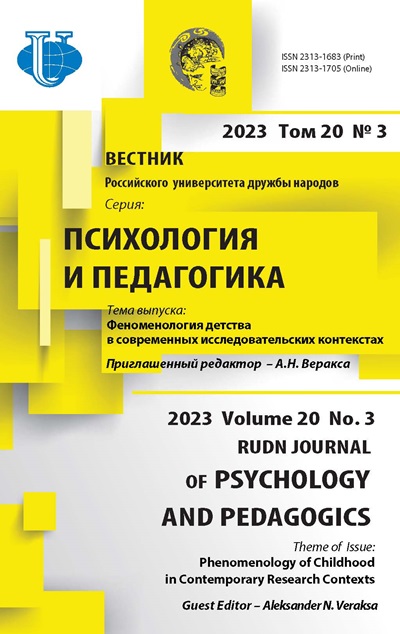PEDAGOGICAL CONDITIONS OF THE INTELLECTUAL DEVELOPMENT OF PRESCHOOL CHILDREN BY MEANS OF FOREIGN LANGUAGE
- Authors: Kartashova VN1
-
Affiliations:
- Bunin Yelets State University
- Issue: No 4 (2015)
- Pages: 93-98
- Section: Articles
- URL: https://journals.rudn.ru/psychology-pedagogics/article/view/13456
Cite item
Full Text
Abstract
The article describes the conditions of intellectual development of preschool children during foreign language teaching in the developmental subject-spatial environment of a preschool educational institution. The creation of developing educational and subject-spatial environment gives the opportunity to implement different programs. When creating the developing educational environment a particular emphasis is given to the foreign language. Teaching a foreign language helps reach the goals not only of the formation of foreign language communicative skills of preschool children, of introduction to a foreign culture, but also solve challenges of his intellectual development. Several types of interaction of the child with objects of the surrounding world are identified. They are latent, real and mediated. The main ways to stimulate intellectual development of the preschool child are described (the creation of a favorable psychological environment; ensuring the opportunity to actively ask questions of divergent type due to the enrichment of meaningful context of a child’s life; the widespread use of questions relating to the most diverse areas with the aim of developing children’s observation). These methods can be considered as pedagogical conditions which will allow us to create the environment for the personal development of the child. The article presents the experience of their implementation. The main approach is integrative-game. This approach supposes the inclusion the integration of different types of children’s activities (visual, musical-rhythmic, theatrical) for the joint execution of tasks focused on the development of the child in the process of foreign language teaching.
About the authors
V N Kartashova
Bunin Yelets State UniversityDepartment of Foreign Languages and Methods of their Teaching
References
















